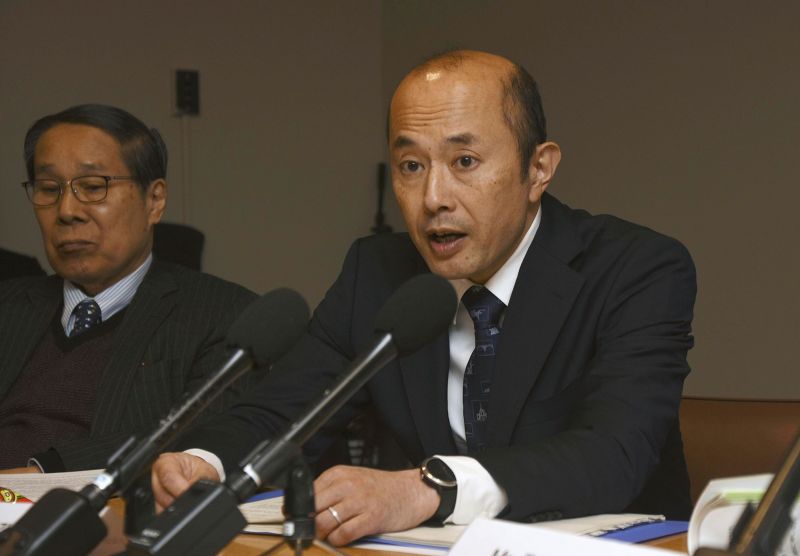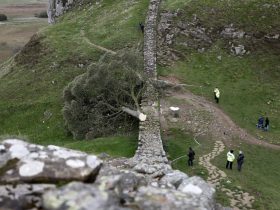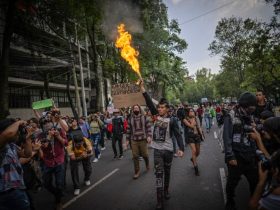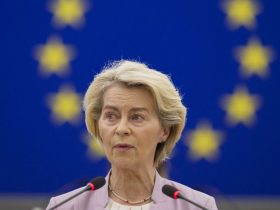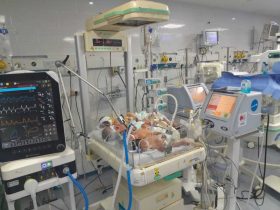Israel will not be invited to this year’s peace ceremony commemorating the 1945 atomic bombing of Nagasaki to promote a “peaceful and somber atmosphere” at the August 9 event, the city’s mayor told local media Wednesday.
Both cities had been under pressure from activists and bomb survivor groups to exclude Israel due to its actions in Gaza, where tens of thousands of Palestinians have been killed since Israeli began targeting militant group Hamas following the October 7 attack.
Nagasaki’s mayor Shiro Suzuki told reporters Wednesday that Israel’s exclusion was due to security concerns and was not a political decision.
“I would like to emphasize that this decision was not based on political considerations, but rather on our desire to hold the ceremony to commemorate the victims of the atomic bombings in a peaceful and solemn atmosphere, and to ensure that the ceremony goes smoothly,” he said, calling the decision “difficult.”
The arrangement differs with Hiroshima, the first city hit with an atomic bomb during the closing stages of World War II, that ultimately led to Japan’s unconditional surrender.
Every year diplomats are invited to peace ceremonies in both cities, held within days of each other, to reflect on the importance of peace and perils of deploying nuclear weapons.
Hiroshima’s annual peace ceremony is the larger of the two and representatives from 115 countries and the European Union are set to attend this year.
Tens of thousands of people were killed by the 1945 atomic bombs, both instantly and in the months and years to come due to radiation sickness.
In a post on X, Israel’s Ambassador to Japan, Gilad Cohen described Nagasaki’s decision as “regrettable,” adding it “sends a wrong message to the world.”
“Israel is exercising its full right and moral obligation to defend itself and its citizens and will continue to do so. There is no comparison between Israel, which is being brutally attacked by terrorist organizations and any other conflict, any attempt to present it otherwise distorts the reality,” he said.
Israel has repeatedly rejected accusations from critics including rights groups and experts that it has broken international humanitarian law with the breadth of its response to Hamas’ attacks. It argues its war is against Hamas, not Palestinians.
A controversial invitation
The ceremony in Nagasaki will take place at the city’s Peace Park on August 9, marking the day the US military dropped the second atomic bomb on Japan, three days after that of Hiroshima.
Nagasaki officials had previously indicated some reluctance to host Israel at the event.
In June, Suzuki sent a letter to Israel calling for a ceasefire in Gaza, leaving an invitation to the ceremony on hold due to a risk of “unexpected situations” such as protests, according to Kyodo News.
On Wednesday, Suzuki said he had not seen any changes in recent weeks that would lessen the risk of inviting Israel.
Hiroshima authorities don’t appear to have the same security concerns, despite having sidelined Russia and Belarus to order “to ensure the ceremony goes smoothly,” according to a spokesperson.
Both countries have been excluded from the event since 2022 when Moscow invaded Ukraine.
Russia used Belarus as one of the launch pads for its assault and later moved some of its tactical nuclear weapons there.
Some local activists and peace advocates accused Hiroshima authorities of double standards for excluding Russia and Belarus but allowing Israel to take part.

